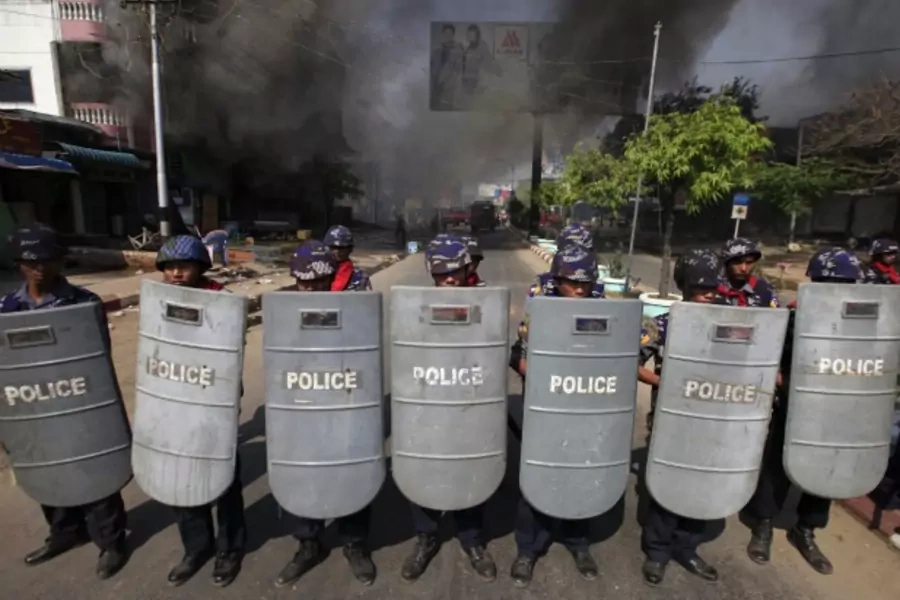Myanmar: Listen to the Warnings

More on:
Over the past two weeks, anti-Muslim violence in Myanmar, which last year had seemed confined to the western state of Rakhine where the religious conflict was intertwined with issues of residency and citizenship, has exploded across the country. Mobs of Buddhists, some with ties to the militant Buddhist group 969 Movement, have attacked Muslims in Miktila, Naypyitaw, Bago, and now in Yangon. Many Muslims in Yangon, Bago, and other large towns are afraid to go to the mosque, enter shops catering to Muslims, or show displays of their faith outside their homes or stores. Aung San Suu Kyi has been notably quiet, and she is rapidly losing much of the moral and political capital she amassed during her long years in detention.
One of the most striking aspects of the recent anti-Muslim violence, which has seemed to take the government, the army, investors, donors, and Aung San Suu Kyi by surprise, is that many Muslim organizations and Muslim leaders in Myanmar had been warning of such attacks for months if not a year. Although the government had tried to tell donors, investors, journalists, and foreign diplomats that the anti-Muslim violence in Rakhine State was an issue localized to that area, in reality even last year there had begun to be attacks on mosques and some Muslim shops in other parts of the country. Not a few donors and investors believed this reassurance because of the enormous opportunities in Myanmar, which are chronicled thoroughly and with cutting insight in a new report released by Lex Rieffel of the Brookings Institution.
Yet even if the Thein Sein government, the opposition, and outsiders had ignored the warnings from prominent Myanmar Muslim leaders, it should have been even harder to ignore the climate of hateful speech and anti-Muslim sentiment (and, at times, anti-Chinese, anti-Indian, and anti-anyone-who-is-not-ethnic-Burman sentiment) that has exploded in Myanmar over the past two years. The 969 Movement’s activities were not hidden; they have been giving anti-Muslim speeches, holding anti-Muslim rallies, and distributing DVDs full of vitriol for at least a year. Such paraphernalia was easy to buy when I was in Myanmar two months ago. Meanwhile, the Myanmar Internet, though only accessed by less than 5 percent of the population, already is overwhelmed by hateful screeds against Muslims, non-Burmans, Indians, and Chinese, among others. There are few Myanmar sites like the kind run in the West by groups such as Human Rights Watch and dedicated to exposing rights abuses and the real causes of inter-ethnic or inter-religious violence in any one case; on many Myanmar sites, Muslims or other “outsiders” are blamed for every clash that takes place across the country. Even in the pro-democracy National League for Democracy, I have found worrying levels of prejudice against Muslims and non-Burmans. It is time for the government, the opposition, and outsiders to wake up and realize that, while Myanmar has made great strides in the past three years, the country could as easily descend into chaos and violence as it could be an example of successful democratization.
More on:
 Online Store
Online Store